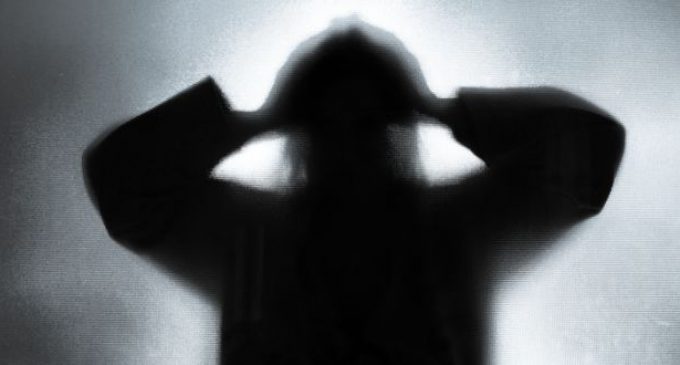More than 100 cases linked to trafficking and slavery being investigated, gardaí say
iStock

Victims in Ireland ‘silently crying out for help’ as they ‘do somebody’s nails, or wash somebody’s car’
Garda specialist units were currently investigating “well over 100” suspects and crimes linked to human trafficking or modern slavery, including Irish gang members suspected of trafficking women into the Republic.
The Irish suspects are part of a transnational organised crime gang made up of criminals from the Republic and Brazil, Assistant Commissioner Anne Marie Cagney has said, with 13 suspects identified to date.
Human trafficking victims in Ireland were “silently crying out for help” in Ireland “as they do somebody’s nails, or wash somebody’s car or take care of somebody’s children”.
In another live Garda inquiry, suspects from Egypt and Romania were under investigation on suspicion of working together in trafficking women into Ireland, through facilitation and organising transport.
An unrelated Garda investigation into labour exploitation in the fishing industry in Ireland, ongoing since 2017, was almost complete. More criminal case files were about to be sent to the Director of Public Prosecutions to determine if there was sufficient evidence to press criminal charges.
Ms Cagney said 28 potential victims – 18 female and 10 male – of human trafficking had been identified in the Republic so far this year. Their cases involved 30 reported incidents of trafficking related to labour and sexual exploitation; 10 incidents in the Republic and 20 outside the jurisdiction. Some 26 of the victims were adults and two were minors.
Ms Cagney, who is in charge of policing in the Garda’s Dublin Metropolitan Region (DMR), was addressing the Irish Security Series about the ‘extent of modern slavery and human trafficking. The series was co-hosted by SAR Consultancy and University College Cork’s Department of Sociology and Criminology and was funded by the British Embassy in Ireland and also heard 14 victims of trafficking in the UK last year were Irish.
Ms Cagney said trafficking into the Republic was being driven by an “increased demand for cheap labour and sexual services”. Irish “society needs to understand that trafficking in human beings generates profits”. The darknet and internet strengthened the capability of crimes gangs involved in trafficking. It also offered them anonymity which wasd “the perfect ground for human traffickers” as it allowed them to operate “in the shadows”.
Ms Cagney added that, aside from the sex industry, some victims were trafficked into Ireland for labour purposes in construction, agriculture, the entertainment industry, services sector, manufacturing, “domestic servitude” and begging.
The structure of the gangs involved, including for organised prostitution, were “mapped” by the Garda, including the suspects involved, where and how they operated and the threats they posed. This intelligence was then shared among national Garda units.
“People should not expect to be treated like slaves… we should never turn a blind eye to the lives they are enduring,” Assistant Commissioner Cagney said, adding human trafficking and organised prostitution were strategic crime priorities for the Garda, both to investigate and in supporting victims.
She had seen cases where trafficking victims had recovered and were “transformed” after they had come forward and their cases were investigated. However, people were being trafficked into Ireland and were “constantly used as commodities” as there was “no act was more dehumanising and exploitative than the trafficking of human beings”.
Daily basis
Some of the victims did not even realise they had endured trafficking and exploitation as the cases were often complex.
“We are passing by victims of human trafficking on our streets on a daily basis. We need to begin to recognise their suffering and their harm,” she said, adding many victims went “unidentified and unsupported” as they were often too fearful of “retribution” for themselves and their families back home if they came forward.
For many, a “fear of the criminal justice system” and “language and cultural barriers” also ensured they were unwilling to come forward but Irish policing and the criminal justice system must better convince them they will be supported.
Men, women and young girls trafficked for sexual exploitation had all been encountered during Garda investigations and in some cases when they were “rescued they actually go back to working in the same industry because they feel undervalued as individuals and they feel that they have no skills”.
Ms Cagney also revealed that harbours and small airfields, as well as ferry ports and airports, were also being monitored on suspicion trafficking victims were being brought into the country via “unapproved points of entry” for the purposes of exploitation.
Training had already been provided to some personnel in the hospitality sector to help them identify the warning signs that someone had been trafficked. This was being extended to Customs and border officials while an awareness and training scheme was also being rolled out in the aviation sector so staff could more easily identified signs of human trafficking.
The FBI and Department of Homeland Security in the US had also trained Garda personnel to better understand the extent and significance of human trafficking. However, victims were well under-represented” in the official Garda data.
Source: The Irish Times







